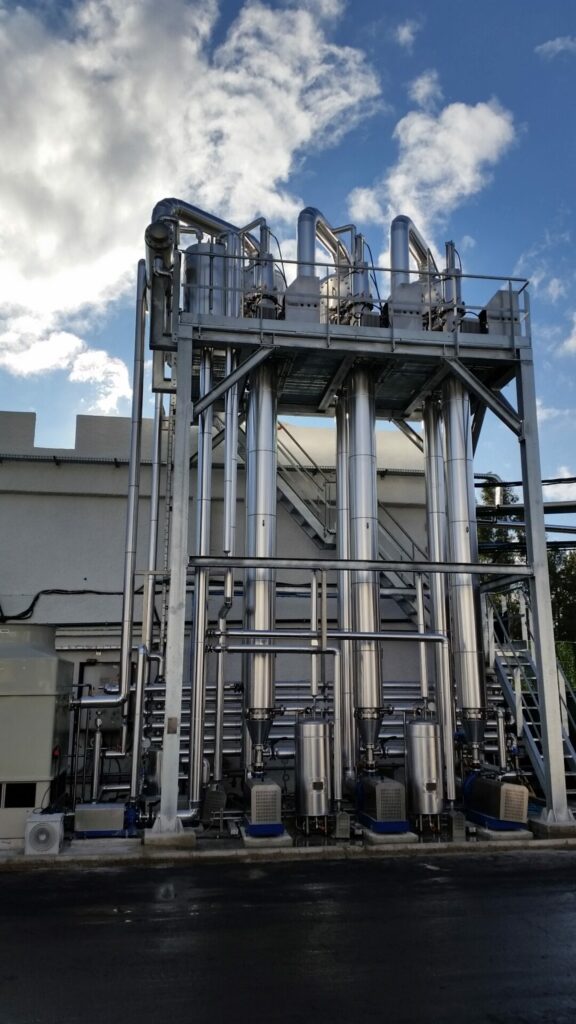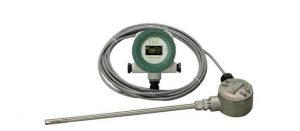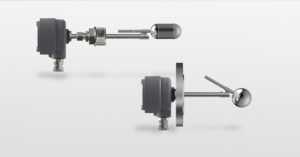1 Do I actually need a heat exchanger?
Although heat exchangers are the preferred option for many wastewater treatment processes, in some situations, a straightforward heating element or alternative evaporation system may be more suitable.
2 What type of heat exchanger best suits my needs?
The simplest option are plate heat exchangers (PHEs), however, the highly viscous nature of most effluents and sludges means that tubular or scraped surface heat exchangers are more effective.
Tubular heat exchangers with corrugated tubes increase product turbulence compared to smooth tubes (which are more common), which prevents fouling and improves operating efficiency. Corrugated tube heat exchangers, such as the DTI Series are ideal for digester heating and dealing with simple effluents.
For high fouling materials and evaporation, the HRS Unicus Series of scraped surface heat exchangers (SSHEs) are the best choice.
3 Will the heat exchanger cope with my material/s?
Sludge properties such as viscosity, solids content and texture will all affect thermal and physical behaviour in a heat exchanger and more complex materials will need specific analysis and solutions. A failure to understand the product can result in ineffective treatment which could affect environmental safety, product quality, economic returns, or usability of the supplied equipment.

4 How will you design the heat exchangers?
Does the supplier use the very latest scientific information on energy and heat transfer, or is it relying on papers and data which are out of date? While the heat exchanger needs to perform correctly, other considerations, such as ease of installation and maintenance, are also important.
5 How energy efficient is the system?
The last few years have highlighted the importance of energy costs both from an economic and environmental perspective. Some heat exchanger designs are more energy efficient than others (for example, the use of corrugated tubes improves energy efficiency). In addition, heat exchangers may be able to recover heat from the end of the process and re-use it (known as heat regeneration).
6 Will you supply a complete system?
Some suppliers will only supply components, leaving the customer or a third-party engineering contractor to combine the heat exchanger and control systems with the necessary ancillaries, such as pipework, pumps, holding tanks, etc. A complete ‘plug and play’ solution means you can be confident that the various components will work together and the system will perform as expected. You will also have a single point of contact for any maintenance or warranty queries.
7 Do you offer bespoke solutions?
Different materials have different handling requirements and there is no ‘one size fits all’ solution in terms of heat exchanger. Manufacturers produce a range of tubular heat exchangers, from simple multi-tube designs through to scraped surface designs that are capable of dealing with high-fouling materials while maintaining product integrity. Some suppliers like HRS will go further, allowing you to specify particular brands of components or controllers – for example, to comply with existing factory maintenance contracts or traceability systems.
8 How easily will the system integrate with my current operation?
Involving your engineering and environmental teams at an early stage can ensure that your new heat exchanger system is fully integrated with the rest of your facility. How complicated is it to access key components and what are the costs of routine spare parts such as seals and gaskets? For double and triple tube heat exchangers, is it possible to remove individual tubes without dismantling the entire unit, and is it possible to service parts of the unit without shutting down the whole process?

9 What after-sales support do you offer?
Does your potential supplier offer features such as extended maintenance and servicing? Would you be able to take advantage of any future upgrades, such as improvements in tube design? It may not be essential to deal with a company which is based locally, but you should investigate how well they deal with other clients in similar circumstances and what their support offering looks like in your particular country. Also, what role does the heat exchanger manufacturer play in installation and commissioning and what training is provided for operators and engineering staff?

If a potential supplier engages with you and is open and transparent when responding to your questions, this bodes well for a good working relationship, leading to the supply of a heat exchanger which will meet your specifications and work reliably for many years to come.
Source of Article



